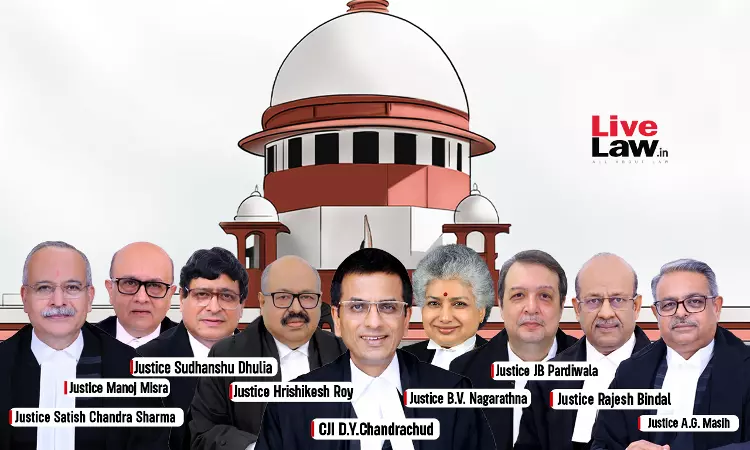Not All Private Property Is 'Material Resource Of Community' Which State Must Equally Distribute As Per Article 39(b) : Supreme Court
Anmol Kaur Bawa
5 Nov 2024 11:14 AM IST

Next Story
5 Nov 2024 11:14 AM IST
The Supreme Court today (November 5) held by a majority of 7:2 that all private properties cannot form part of the 'material resources of the community' which the State is obliged to equitably redistribute as per the Directive Principles of State Policy under Article 39(b) of the Constitution.The Court held some private properties may come under Article 39(b) provided they meet the qualifiers...
